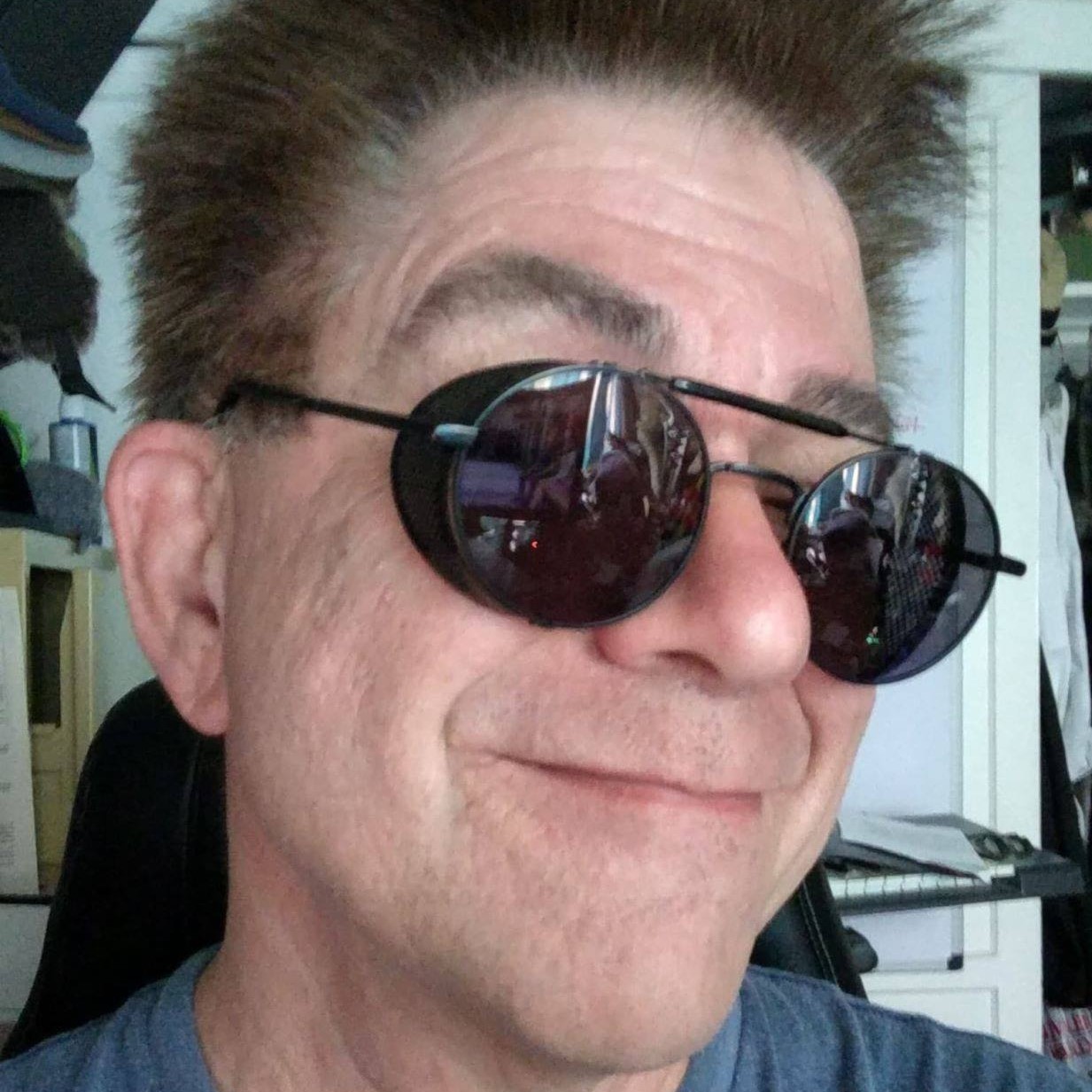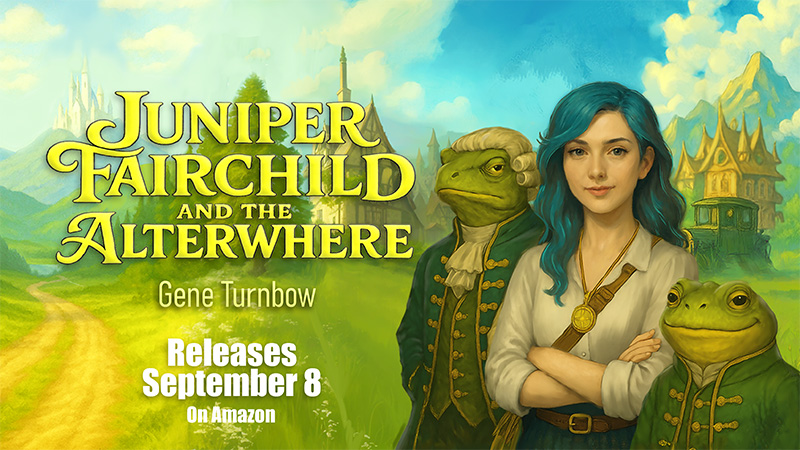I am not, and have not been, in my thirties for a very long time. That said, I probably don’t have the time to wait around to pummel hundreds of agents with my manuscript until I am “discovered” by one of them. I have therefore decided to take matters into my own hands.
Helium Beach is an imprint I have been operating through Krypton Media Group for about five years now, as of this writing, and I was using Patreon money to buy short stories for publication. Needless to say, this sucks as a business model, so after a couple of years I stopped buying articles. Now, though, Helium Beach comes back into play. I am releasing my first novel, Juniper Fairchild and the Alterwhere, through this imprint, and I have established it with various publishing agencies and companies. The eBook and the paperback release on September 8, 2025.
And now I am swimming through the sudden realization that what I know about social media you could drown in a teacup. The learning curve has been soul shredding, terrifying. Yet, failure is absolutely not an option here, so despite the emotional trauma at having to get my feet back under me at 68 and start a whole new career, here we f**king go.
I’ve learned how to do internal design, cover design, how to work with an editor, the importance of using one, doing endless rewrites, doing my own cover design, and everything else while I keep my radio station running—the radio station, by the way, without which I would have had zero shot at any of this and would have been truly starting from scratch. The station, SCIFI.radio, has a social media reach of about 140,000 pairs of eyeballs due to its presence on five or six social media, and without that springboard I honestly have no idea how well I would be doing as an author. Probably not well.
It’s been exhausting, having to learn all this on top of having to write the book in the first place. I can see why a lot of indie authors never sell more than a dozen copies of their book. I think this just might be the most challenging thing I’ve ever done, not because the work is that hard, but because it’s so alien to how I think. I was raised to believe that if I did good work, people would notice, and I would rise. And that’s not actually how things work at all.
Quantity over Quality
You might find it appalling, but success has more to do with how you twiddle the knobs than the quality of your work. I mean, sure, the quality has to be there at the end, or your sales success will be singular and short-lived, but to begin with, before anybody’s seen your actual work, you can get quite a long way before you actually have to deliver the product.
TikTok and Instagram, for example, are currently considered the platforms for marketing and selling books. Nothing else really moves the needle. Facebook, which I had been relying upon for years, absolutely doesn’t. Yet, both platforms favor videos of a length between seven and fifteen seconds. You’re not doing much selling in seven seconds. You have to fall back on repetition, posting a couple times a day, sometimes for months, before you start to see a benefit. I can tell you, it’s exhausting.
I was just reading about one young lady (whom I will not name, in case she wants to try again and do better next time) who had somehow managed to get 4,900 pre-orders on her book, and then the book released, and all the people who bought it felt cheated because little attention had been paid to preparing the book for publication. It was poorly written, poorly edited (which could have fixed the “poorly written” part,) and contained numerous spelling errors. She got probably a $30,000 payday out of it as a first time author, and yet somehow had managed to run the prerelease guantlet without getting a proper editor in the mix; the point being that it is possible to learn the intracacies of the sales engine without having an actual salesworthy product.
The Actual Path
By this time you can figure out for yourself why indie writers usually fail. It’s not enough to write a great novel. If you’re an indie author, you have to not only write your book, but you’re responsible for all the things your agent would normally do for you, and all the things your publisher would normally do for you. You have no idea what you’re facing until you do it for the first time, nor do you have a clear idea of just how deep this rabbithole goes. The successful self-published author has mastered every single one of these tasks.
And here’s the kicker to all of it. The decision to self-publish might have been the right answer, even if I want to be traditionally published later. An astonishing number of agents now only accept authors with proven sales records and established social media spheres, because they can’t risk gambling on somebody who doesn’t have either one. The publishers are getting this way too. It used to be that the proving ground for new writers was selling short stories to the trade magazines, but they’re all gone now, and that hasn’t been true for probably half a century now. Writing shorts is still a way to polish up your writing skills, but if I’m honest here, writing short stories and writing novels are two completely separate skill sets. Success in one does not require or suggest success in the other.
Anyway, long story short, if you’re an indie author trying to climb to the top, don’t give up. You’re doing it right. There is no slush pile anymore. Indie publishing is the slush pile. Persistence will win the day.


Recent Comments